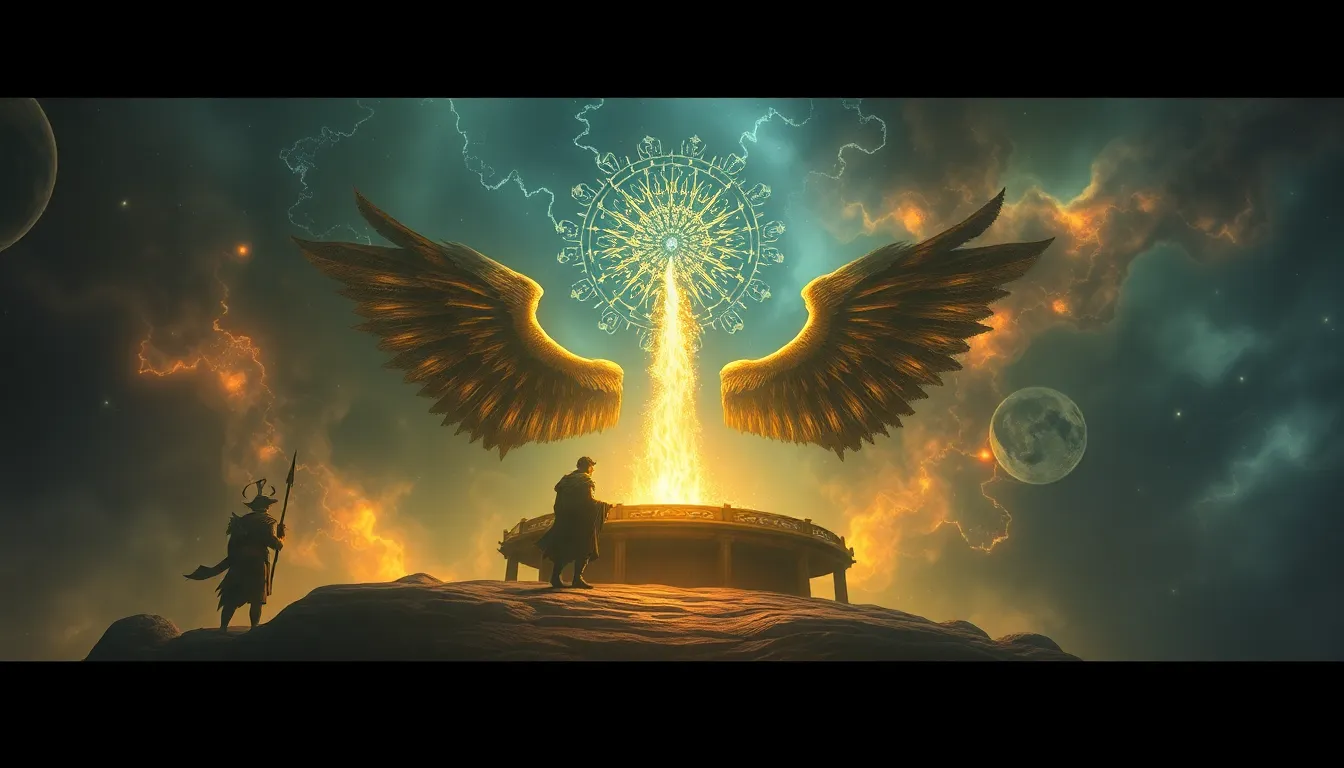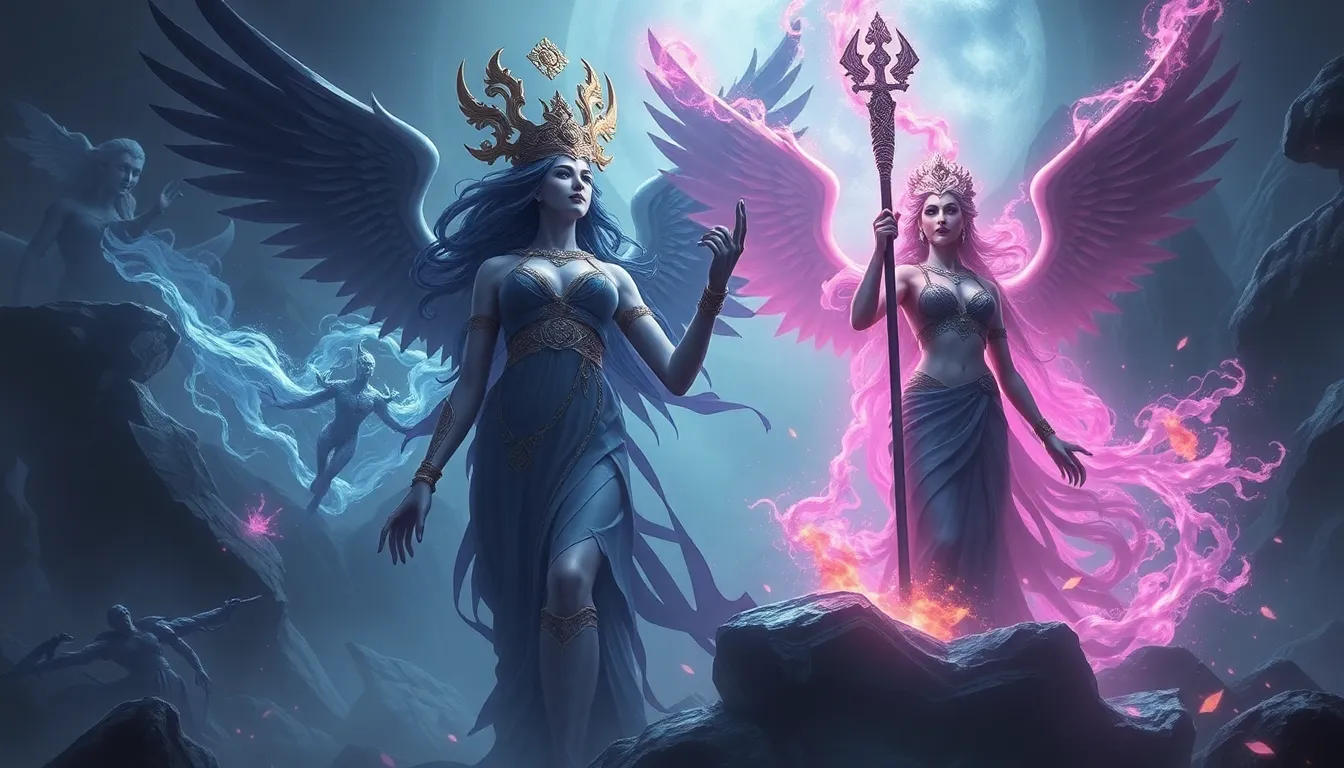The Quest for Immortality: Legends of Eternal Life
I. Introduction to Immortality
Immortality, often defined as the ability to live forever, has captivated human imagination for millennia. The quest for eternal life transcends cultures and epochs, reflecting deep-seated fears and hopes regarding death and existence. Throughout history, many have sought ways to escape mortality, leading to a rich tapestry of myths, philosophical inquiries, and scientific explorations.
The significance of immortality can be traced back to ancient civilizations, where the afterlife was a prominent theme in religious beliefs and rituals. Different cultures have distinctive perspectives on death and immortality, shaping how societies view life, death, and what may lie beyond.
II. Ancient Myths and Legends
The pursuit of immortality is steeped in ancient myths that reveal humanity’s longing for eternal life.
- The Epic of Gilgamesh: This ancient Mesopotamian epic follows King Gilgamesh’s quest for everlasting life after the death of his friend Enkidu. Gilgamesh learns that immortality is reserved for the gods and that humans must accept their mortality.
- The Greek Myths: Greek mythology is rife with tales of mortals seeking divine favor. Tantalus, punished for his hubris, is eternally tormented by unreachable food and water, symbolizing that even in proximity to the divine, true immortality eludes mortals.
- The Fountain of Youth: This legendary spring supposedly restores youth to those who drink from it. Stories of explorers, like Ponce de León, who sought the Fountain, highlight humanity’s enduring quest for rejuvenation and life extension.
III. Spiritual Perspectives on Immortality
Spiritual beliefs about immortality vary widely across cultures, offering different interpretations of life after death.
- Eastern Philosophies: In Hinduism and Buddhism, reincarnation embodies the concept of an eternal cycle of birth, death, and rebirth. Souls evolve through various forms, seeking enlightenment and liberation from this cycle.
- Western Religions: Christianity and Islam emphasize a form of eternal life in heaven or paradise, contingent upon one’s faith and actions during earthly existence. The soul is central to these beliefs, providing a pathway to immortality beyond physical death.
- Concepts of the Soul: Across cultures, the soul is viewed as immortal, with various interpretations regarding its journey after death, influencing rituals and moral codes.
IV. Historical Figures in the Pursuit of Immortality
Throughout history, notable figures have become emblematic of the quest for immortality.
- Alexander the Great: Driven by a desire for divine favor and recognition, Alexander sought knowledge and experiences that would immortalize his name, achieving legendary status that endures to this day.
- The Alchemists: In medieval Europe, alchemists aimed to transform base metals into gold or discover the Philosopher’s Stone, believed to grant immortality. Their pursuits laid foundations for modern chemistry.
- Ponce de León: The Spanish explorer is famously associated with the search for the Fountain of Youth, symbolizing the human desire for renewal and eternal life.
V. The Science of Aging and Longevity
As science progresses, understanding aging and longevity has become a significant field of study.
- Biological Aging: Aging is a complex process influenced by genetics, environment, and lifestyle. Theories include cellular senescence, telomere shortening, and oxidative stress, all contributing to the aging process.
- Current Research: Scientists are exploring the genetic basis of aging, identifying genes linked to longevity and studying model organisms to understand the mechanisms of aging better.
- Technological Advancements: Advances in biotechnology and regenerative medicine hold promise for anti-aging treatments, including stem cell therapy and gene editing, paving the way for potential life extension.
VI. Modern Interpretations of Immortality
In the contemporary world, the concept of immortality has evolved, intertwining with technology and philosophy.
- Transhumanism: This movement advocates for the enhancement of human capabilities through technology, aiming for an extended lifespan and improved quality of life. It explores the merging of humans with machines, potentially leading to a new form of existence.
- Digital Immortality: Innovations in artificial intelligence offer pathways to preserve human consciousness, allowing individuals to exist in digital form after physical death.
- Biotechnology’s Role: Biotechnological advancements are increasingly focused on extending human life, with research into anti-aging treatments and therapies that could significantly prolong life expectancy.
VII. Ethical Implications of Seeking Immortality
The quest for immortality raises critical ethical questions and considerations.
- Moral Questions: Should humanity pursue life extension at all costs? The implications of dramatically extended lifespans challenge existing moral frameworks regarding life and death.
- Societal Impacts: Overpopulation and resource distribution become pressing issues if life expectancy increases significantly. The potential economic and environmental consequences must be carefully considered.
- Psychological Effects: The prospect of living forever could lead to existential crises, impacting mental health and societal dynamics.
VIII. Cultural Representations in Literature and Media
Immortality has been a recurring theme in literature and media, shaping public perception of eternal life.
- Classic Literature: From Mary Shelley’s “Frankenstein” to Bram Stoker’s “Dracula,” literature often explores the consequences of seeking immortality, revealing the darker side of eternal life.
- Film and Television: Numerous films and series delve into themes of immortality, presenting varied interpretations that reflect societal values and fears regarding death.
- Impact on Public Perception: These narratives influence how society views the quest for immortality, often glamorizing or warning against the human desire to escape death.
IX. Personal Accounts and Modern-Day Seekers
In today’s world, many individuals actively pursue longevity and immortality.
- Interviews with Seekers: Personal stories reveal diverse motivations for seeking extended life, from health optimization to philosophical beliefs.
- Case Studies: Communities dedicated to life extension, such as those practicing extreme health regimens or utilizing cutting-edge medical technologies, showcase the modern quest for immortality.
- Success Stories and Cautionary Tales: While some individuals achieve remarkable health and longevity, others face challenges and ethical dilemmas, highlighting the complexities of this pursuit.
X. Conclusion: The Future of Immortality
The quest for eternal life continues to evolve, intertwining ancient myths with modern scientific exploration. As humanity grapples with the implications of potential immortality, we must navigate the moral, societal, and psychological challenges that arise from our desire to defy death. Looking ahead, the future of immortality may hold possibilities we are only beginning to comprehend, blending technology, biology, and philosophy in unprecedented ways.




